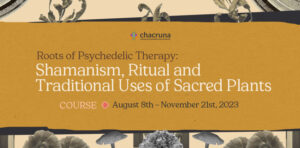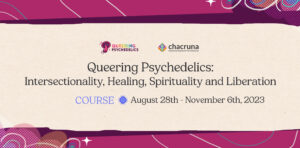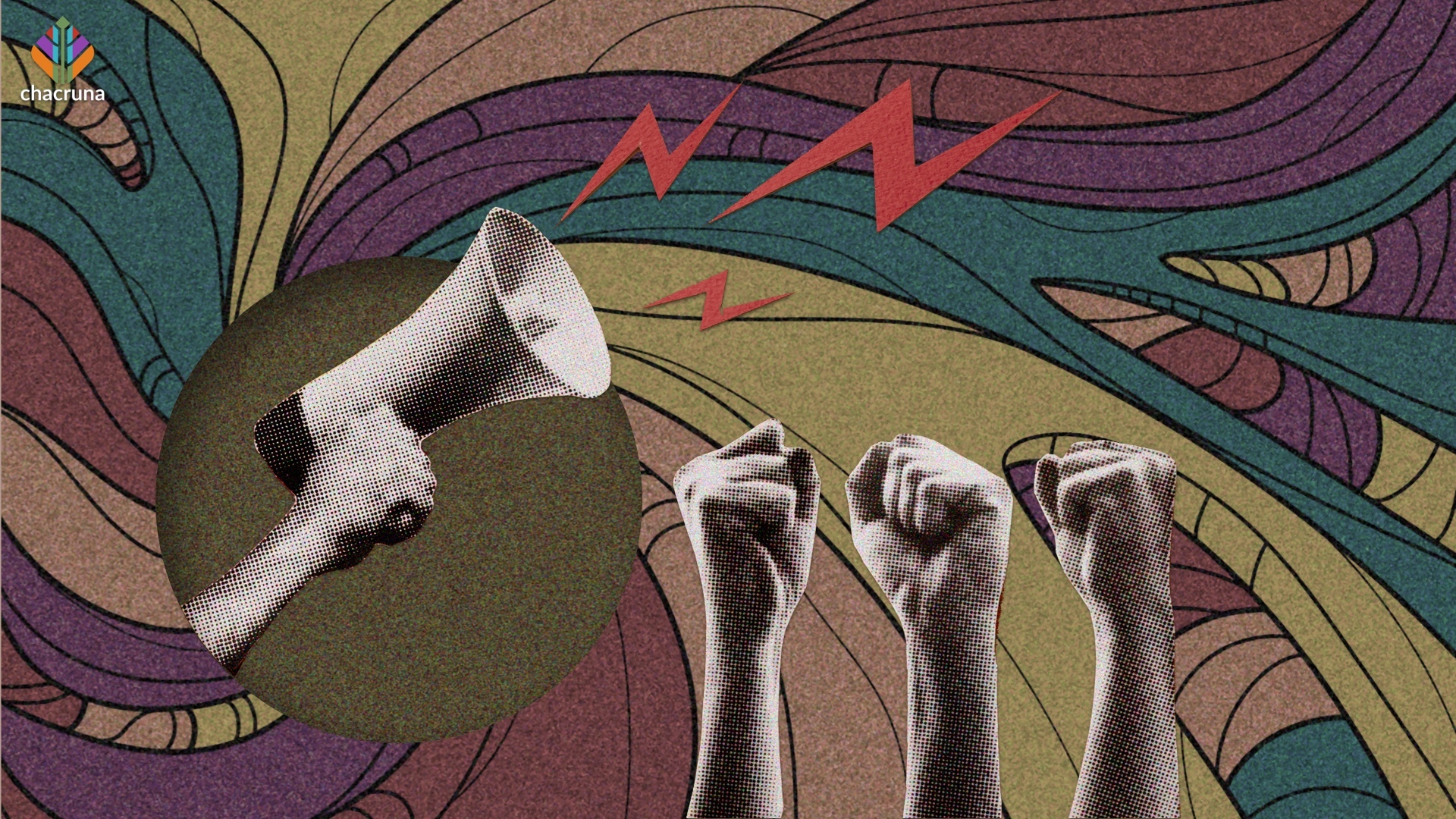- 2024 Begins with Trepidation in Psychedelic Medicine and Markets - January 26, 2024
- This is How Jurema, a DMT-Containing Tree, Helped the Pankararé People Recover Their Land in Brazil - December 29, 2023
- The Triumphant Comeback of Psychedelics - July 24, 2023
If the universe is going to end with a whimper, the Psychedelic Science Conference (PS2023) ended with a loud bang. The simmering tension at the industry’s largest convention ever, between the misnamed psychedelic renaissance and traditional knowledge on psychoactive plants and fungi, agitated the final day of the event.
The gathering in Denver began quietly, in the celebratory rhythm of the heroes of the scientific resistance against the prohibitionism of the 1970s, which stalled research with consciousness modifiers for three decades. With 12,000 registrants and 500 speakers, the PS2023 signals that the stigma is fading.
Friday, June 23rd, was Stanislav Grof’s turn to be honored, as it was Roland Griffiths’ the day before. A Czech-American psychiatrist, Grof developed the holotropic breathing technique that kept research and therapeutic application of altered states alive during the proscription of MDMA, LSD, mescaline, and psilocybin.
MDMA and psilocybin, in particular, are the promises of a much-needed breakthrough in psychiatry, whose methods and drugs are ineffective for many patients. Randomized controlled clinical trials (RCTs) have been presenting good results against post-traumatic stress disorder and depression, respectively, for two decades, but those drugs have not yet been approved for clinical use.

Join us for our Roots of Psychedelic Therapy: Shamanism, Ritual and Traditional Used of Sacred Plants course.
August 8th – November 21st, 2023. Scholarships Available!
At 91, after suffering a stroke, Grof spoke with some effort, with the assistance of his wife, Brigitte. Although he was in the audience, he presented himself on the big screen in conversation with Rick Doblin, the star of PS2023, who described him as his mentor since 1972.
The psychiatrist reported that at first his research with LSD was done through the crystalline lens of pharmacology—how substances act on the brain. He then realized that people had different journeys even though they were taking the same dose of acid; others, dosed under identical conditions, also made disparate journeys. It was not simply a question of chemistry, he concluded. But it was chemistry, or the analytical methods of biomedicine, that took the center stage of the convention. Most of the presentations, also the most well-attended, focused on detailing the effects of molecules on the brain and the functioning of its networks.
“I want to congratulate you for this, for the research you do with our plants,” said Nishiwaka Yawanawá, leader of the Brazilian Indigenous people of the same name who live near the border with Bolivia and Peru. His Christian name is Biraci, by which he is better known.
“Why don’t you invite us [to participate in the research], we who are the true connoisseurs?”
Nishiwaka Yawanawá, Indigenous Leader, Psychedelic Science 2023
After warning researchers that “medicines” are sacred plants for his people for centuries, Biraci posed the delicate question: “Why don’t you invite us [to participate in the research], we who are the true connoisseurs?”
“Let us unite,” he proposed, to heal human society in decline. “We indigenous peoples have open arms.”
He then lamented the lack of respect of scientific research towards the inhabitants of the forest, human and non-human. He criticized the production of pills with ayahuasca or its psychoactive components and said that his people pray to the plants before touching them to use as medicine.

Discover the Indigenous Reciprocity Initiative of the Americas
“Do you do that? Or do you do it just for your ego? To win international awards? When you respect us, then we will do good for the planet. We need to reconnect with our essence.”
Less diplomatic was the intervention led by Angela Beers, a clinical psychologist who teaches at Naropa Buddhist University (Boulder, Colorado) and identifies as Indigenous-Mexican of the Chichimeca ethnic group. Accompanied by a young drummer, Ecuadorian Kuthoomi Castro, she and her group shouted their way through the final session, planned for a new and final laudation of Rick Doblin, the guru of the Multidisciplinary Association for Psychedelic Studies (MAPS), which organized PS2023.
Doblin, a former hippie who raised about $200 million over 37 years to bring MDMA to the threshold of approval by the FDA, repeated that this was no time for protest. Security guards appeared on stage, but voices rose in the audience calling for the protesters to be given the floor, at the same time that other voices asked protesters to stop and let Rick speak.
“You have been deceived. This [psychedelics] is not revival at all, it’s been going on for a long time. This is capitalism, not a liberation movement.”
Kuthoomi Castro, Psychedelic Science 2023
Doblin relented and asked them to take the stage. “You don’t own our culture,” Beers shouted, referring to the appropriation of mescaline from peyote cacti, for example. Castro, who in PS2023’s official biography introduces himself as mixed-race Kichwa and also lives in Boulder, was on the verge of tears. He said into the microphone: “You have been deceived. This [psychedelics] is not revival at all, it’s been going on for a long time. This is capitalism, not a liberation movement.”
Another woman addressed the audience, as booing was already heard, asking calmly: “You have to change your focus. The path of change is not to colonize plant medicines, either.” When they left the stage, Doblin adopted an accommodating tone. “We are a family, we need all voices.” But he reaffirmed the path of regulation by medicalization chosen by MAPS, perhaps the most likely to achieve health insurance coverage for these treatments.
“We need private capital. If we are really careful, we can do it together.”
Rick Doblin, MAPS, Psychedelic Science 2023
Indigenous inclusion is at the heart of anthropologist Bia Labate’s efforts at the Chacruna Institute. She states that “protests are natural and healthy.” She explained, “It would have been useful for everyone if we better understood the context of their protest and what it aimed to achieve, as well which Native communities they are related to. They also did not make clear that they were invited as active participants in the conference who had presented on these topics earlier in the week, nor did they acknowledge the Indigenous leaders who had also done so.”

Join us for our Queering Psychedelics: Intersectionality, Healing, Spirituality and Liberation course.
August 28th – November 6th, 2023. Scholarships available!
Note: This article was previously published in Portuguese by Folha de São Paulo here. There were minor editing changes from the original text in Portuguese. The views expressed here are by Leite, and not Chacruna. Disclaimer: Leite sits on the advisory board of Chacruna.
Take a minute to browse our stock:
Did you enjoy reading this article?
Please support Chacruna's work by donating to us. We are an independent organization and we offer free education and advocacy for psychedelic plant medicines. We are a team of dedicated volunteers!
Can you help Chacruna advance cultural understanding around these substances?
















